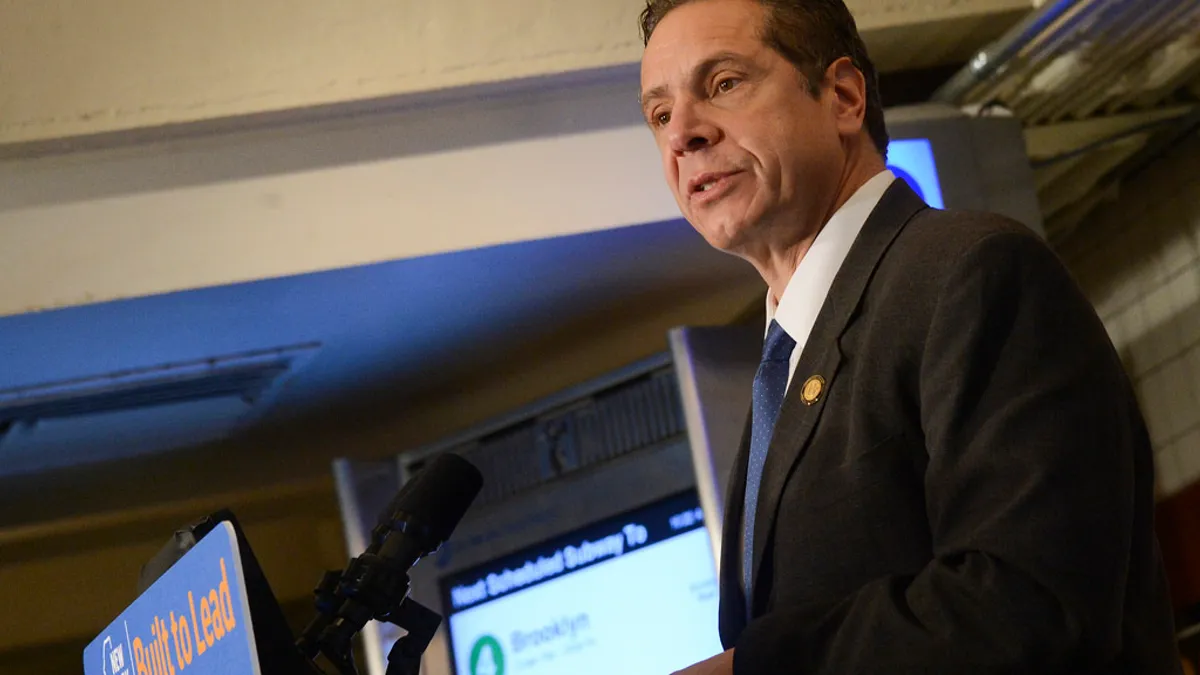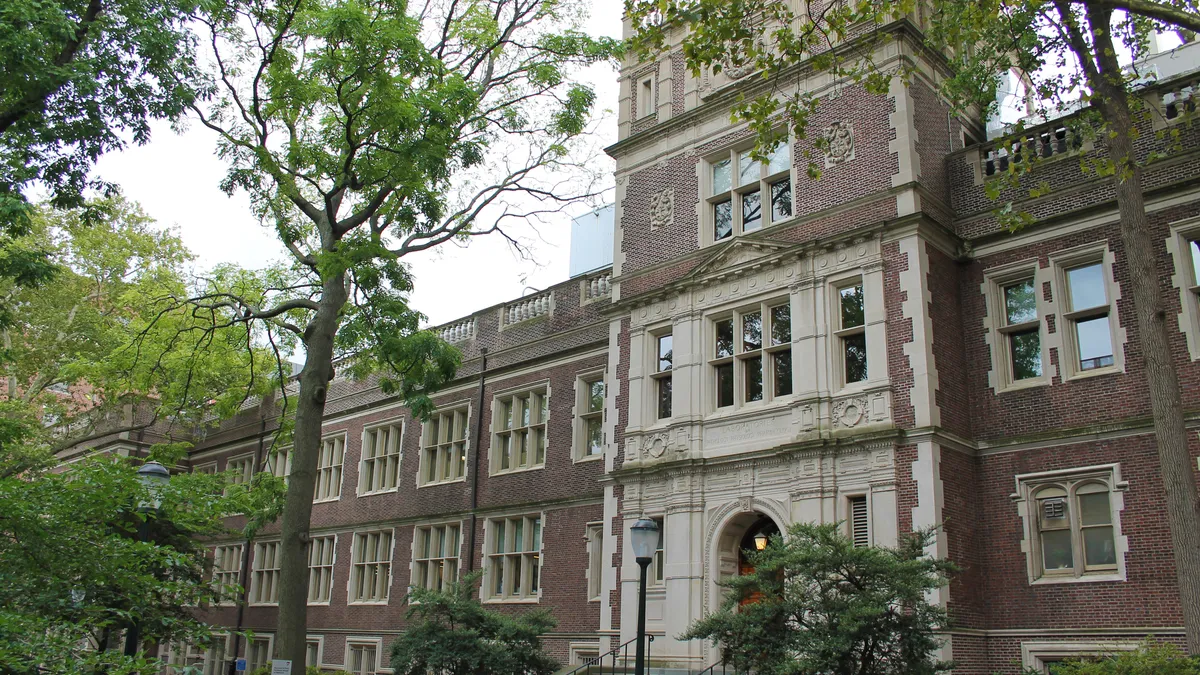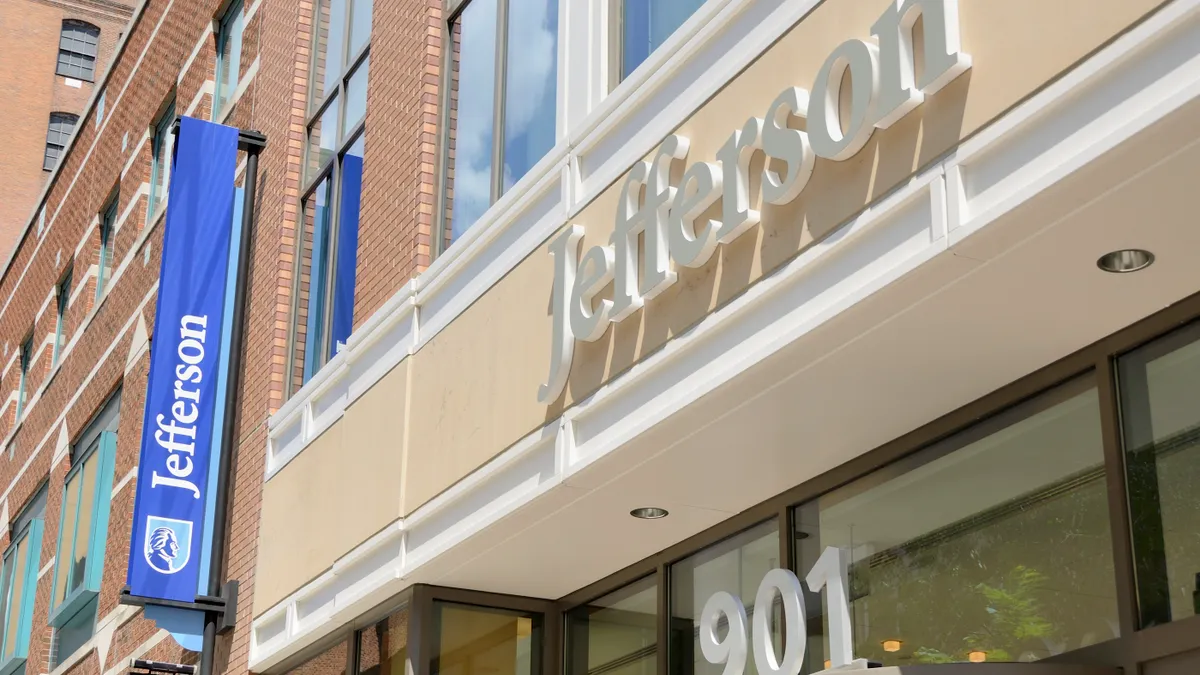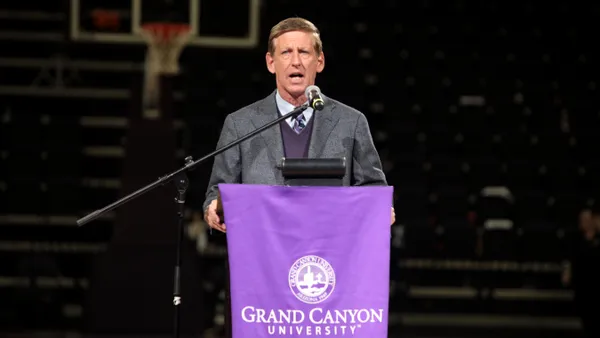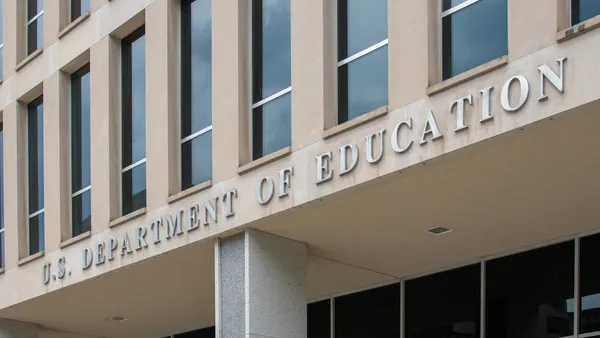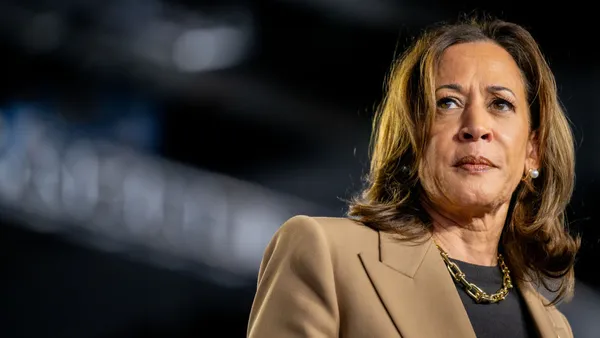Dive Brief:
- In a budget proposal for the 2020 fiscal year, New York Gov. Andrew Cuomo has proposed laws to crack down on student loan servicers and for-profit colleges.
- The plan took aim at the U.S. Education Department's efforts to deregulate for-profits and proposes more state oversight of the sector. Under the new law, New York's for-profit colleges would have to spend at least 50% of their revenue on instruction, take no more than 80% of revenue from public sources and report executive salaries. It would also ban college executives from serving on accreditation boards responsible for their school's oversight.
- Cuomo's plan also would require student loan servicers to obtain a state license and meet certain standards in an effort to stem industry misconduct that his office says has been exacerbated by the Trump administration's deregulatory agenda. The statute, according to the governor's office, would "ensure that no student loan servicers can mislead a borrower or engage in any predatory act or practice."
Dive Insight:
Cuomo drew a direct line between the Trump administration's deregulatory efforts in higher ed and his own plans to create broader protections for students.
In outlining the reasoning behind the For-Profit College Accountability Act, Cuomo's office referenced widespread criticisms of the sector. "The challenge of student debt is disproportionately high at for-profit colleges, where schools can be more influenced by profit motives than the best interests of their students," the office wrote.
The proposal also contends the Ed Department under Secretary Betsy DeVos has been "bowing to pressure from for-profit colleges" to eliminate regulations concerning performance standards. As the administration looks to deregulate, Cuomo aims to "fill the gap," his office wrote.
New York follows a pattern of progressive-leaning states increasing consumer protections at home as the Trump administration methodically works to undo Obama-era regulations and guidance.
In the case of for-profits, the Ed Department wants to reverse the borrower defense and gainful employment rules, which the sector has said are too stringent. After the Ed Department missed a key deadline for releasing new rules, uncertainty has grown about its ability to achieve those goals.
An unpredictable regulatory landscape — along with the reputational hit from lawsuits, investigations and media reports of predatory behavior — have forced for-profit college operators to rethink their business model.
Roughly a dozen colleges have recently converted or are in process of converting to nonprofits, Education Dive reported in December. That can ease the oversight environment, but in some cases those conversions leave room for conflicts of interest and the potential for insiders to profit from school operations, critics of such deals have found. Other for-profits have sold themselves or converted to a service provider model.



